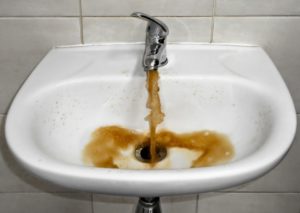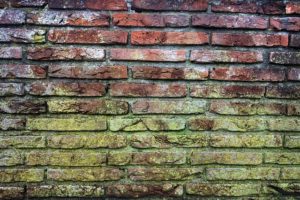Musty smell coming from under your bathroom sink is undoubtedly a problem. This can be a sign of mold or mildew. Only your bathroom sink might not contain this musty smell. Like your kitchen sink or showers, other damp areas can also attract mold and mildew. If you notice such a smell in your house, it is best to act quickly to get rid of it. Here, we have explained how to get rid of the must smell under your bathroom sink.
Causes of Musty Smell Under Bathroom Sink

The main cause behind a musty smell in your bathroom sink is mildew or mold. Having mold in your house is not just unpleasant but dangerous, too. The smell of sewer gas from your drains can indicate methane in your pipes. This toxic gas is harmful to your health. Moreover, the constant musty smell can make you feel nauseous. Here are some causes behind the musty smell under the sink
Blocked Vents
If the vents in your home are blocked, it can cause unpleasant smells. This is because blocks in the duct prevent smells from going out. This makes the smells return to the house and spread unpleasant odors inside.
Blocked Drains

Blocked drains can also cause musty smells under your sink. Debris like hair, food, or other organic waste can get stuck in your drain. These rotting remains can be behind the smells coming from under your sink.
Bacterial Growth
Along with clogs in drains comes bacterial growth. While organic debris will attract bacteria, you may want to avoid some. The wrong type of bacterial growth can lead to nasty smells.
Mold or Mildew

Mold and mildew are tiny fungi growths. They grow on organic waste matter and are the most common cause of musty smells. Mildew is a specific type of mold.
Blocked or Clogged Drains
Blocked or clogged drains can spread nasty odors through the house. This smell can be powerful under bathroom or kitchen sinks. There are many drain cleaners available easily today. But, these cleaners are harmful to your pipes and your health in the long run. Using natural ingredients like baking soda and vinegar is a much safer option. Pouring hot water down your drain sometimes does the trick, too. You can follow this up with a mixture of baking soda and vinegar to break down the clog. Clearing out the drain is an easy way of getting rid of the smells it produces.
Mold and Mildew in The Plumbing System

How are mold and mildew identified?
It is usually easy to identify mold by sight. It looks like a layer of dust settled on surfaces like walls or under your sink. While mildew grows on surfaces, it will not cause structural damage. However, other molds can eat through your walls. Mold testing kits are available in the market easily. But, you can use diluted bleach to check for molds on surfaces—mix 1 part bleach with 16 parts water. Dip a cotton swab into it and rub it over the suspected surface mold. With mold, the rubbed spot will lighten instantly. If the spot keeps reappearing on cleaning, it’s most likely mold.
Why does mold grow in the bathroom?
Heat and moisture are the two basic things needed for mold to grow. Bathrooms are typically humid, a combination of heat and moisture. This created an ideal environment for fungal growth or mold.
What are the effects of mold exposure?
Mold is not an uncommon problem in households. Some people are not affected by the presence of mold at all. But, others might show an instant reaction to it. Having an allergic reaction to mold is common. You often see allergy symptoms like sneezing, runny nose, etc, with mold exposure.
What Are The Health Risks Related to Mold?
Small amounts of mold in houses are standard and typically unharmful. They grow in damp areas like under the sinks or within drains. Usually, you can get rid of them with regular cleaning of surfaces and drain pipes. But, if you start spotting the mold or smelling it more, then the threat may be real.
DIY Steps in Getting Rid of Musty Smell Under Bathroom Sink
Getting rid of the musty smell typically involves cleaning out the drain. Drain cleaners are a quick way to unclog your bathroom drain. But, cleaners are made of chemicals that can make you and your family sick. These chemicals also erode your pipes over time, calling for a worse problem. You can opt to clean your drain with a simple household solution instead. It uses ingredients found easily in the house or the stores. Due to the organic nature of this solution, it is safe to be used repeatedly.
- Insert the tip of a funnel into the mouth of the drain.
- Pour vinegar or baking soda down the funnel.
- Clean the drain cover to get rid of any mold and dirt
- Run hot water down the drain for one minute.
- Use Bleach To Remove The Musty Smell
While it is not always recommended to use harsh chemicals, occasionally, it might work. Along with other chemicals, bleach, too should be used sparingly. Be careful while handling bleach. Wear rubber gloves and safety goggles as a precaution, if necessary.
What If I Can’t Find any Mold or Mildew Under the Sink?

Mold or mildew under the sink may not always be noticeable. If you suspect a mold infection, it is best to use a mold kit. These kits can be bought at supply stores and help identify the mold. But, if you can’t find any mold under your sink, there may be other causes behind the smell. Try cleaning out the pipes and the drain first. If it doesn’t work, look into the passageways in your vents. Blocked vents can also cause unpleasant smells.
Lastly, check for methane leaks or build-up of bacteria. Both bacteria and methane can cause strong and nasty smells. But, they also pose many health risks, especially with long-term exposure. This is why it is vital to promptly treat musty smells from under your sink. If you cannot locate the source, it is wise to contact a professional for diagnosis.
FAQ
Mold is commonly found under bathroom sinks because they thrive in humidity. However, they can also grow in other house areas with the right environment. Kitchen drains and sinks are other common spots for mold growth. Pipe leaks within walls or on can cause dampness. This results in mold growing in the walls or on the ceiling.
Depending on the reason behind the mold growth, it could affect the rest of your house. Humid bathrooms are ideal for mold growth. But, such mold and mildew tend to remain controlled. It is difficult to detect moisture throughout the house until it’s too late. Such moisture can lead mold to spread all over. If you suspect mold in your home, have it inspected for moisture content all over.
Small quantities of mold are usually not harmful, especially when contained in bathroom or kitchen sinks. They should be promptly dealt with but, they don’t pose a health risk. But mold can be more harmful to people with allergies or asthma. It might be unsafe for such persons to sleep in a house with mold. They might react more strongly to it and suffer from severe breathing issues.
Wrapping Up
Mold or mildew is not an uncommon occurrence in houses. It is a spread of fungal growth in warm and damp areas. It is likely due to mold if you notice a musty smell coming from your bathroom sink. Cleaning out surfaces and drain pipes are an easy way to get rid of a mold infestation. Avoid using harsh chemicals for cleaning as they can cause more harm with repeated use. It is crucial to identify the type of mold you’re dealing with. Some surface molds like mildew are mild and easy to deal with. Other types of mold can cause rotting as well as serious health issues. Use a mold kit to identify mold and take actions accordingly. If you find yourself unable to deal with the problem on your own, call in a professional promptly.